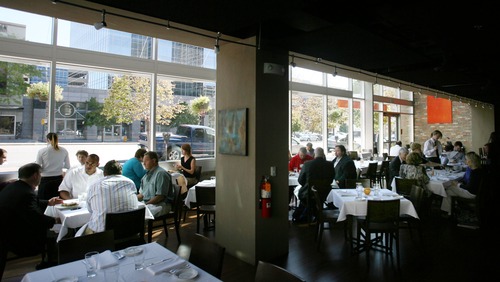This is an archived article that was published on sltrib.com in 2013, and information in the article may be outdated. It is provided only for personal research purposes and may not be reprinted.
"Let them eat cake," as the French saying goes; or in this case, let them eat sandwiches at a restaurant without a tax. That's what the Utah Taxpayers Association wanted, but won't be getting.
The association has decided not to appeal a November decision made by a district court judge in its legal challenge of a restaurant tax imposed in Utah County. The association argued the tax gives an unfair advantage to retail shops over restaurants that sell the same food and drink.
"We disagree with the judge's decision, however in our experience ... if it is a close call ... [the courts] will back up the government," said Utah Taxpayers Association vice president Royce Van Tassell. "Given that experience we felt it was better to live to fight the battle another day."
The restaurant tax allows for a 1 percent county-option surcharge on all prepared foods and beverages sold for immediate consumption. It applies only to restaurants and not to retail stores. For example, grocery store delis and gas stations that sell the same products as restaurants or fast-food chains would be exempt from the tax.
In November, 3rd District Court Judge Paul Kennedy said there wasn't any evidence the restaurant or "sandwich tax" was driving customers away to competitors.
The association is disappointed with the judge's ruling and still feels the tax discriminates. It is an example of how the government is "choosing winners and losers in the marketplace," according to the state tax watchdog's January newsletter.
It sued Utah County over the tax in 2010, on the grounds it violated equal protection provisions of the Utah and U.S. constitutions by unfairly levying different tax rates on the same goods, depending on where they were purchased. Van Tassell said Utah County was chosen at random.
Twenty-seven of Utah's 29 counties opt to impose the tax. It generates about $34 million annually to help governments promote tourism, build convention centers and fund an array of community arts, culture and recreation programs.
Initially, the Utah Restaurant Association was also a part of the case, but it dropped out before the ruling.
Twitter: @CimCity



